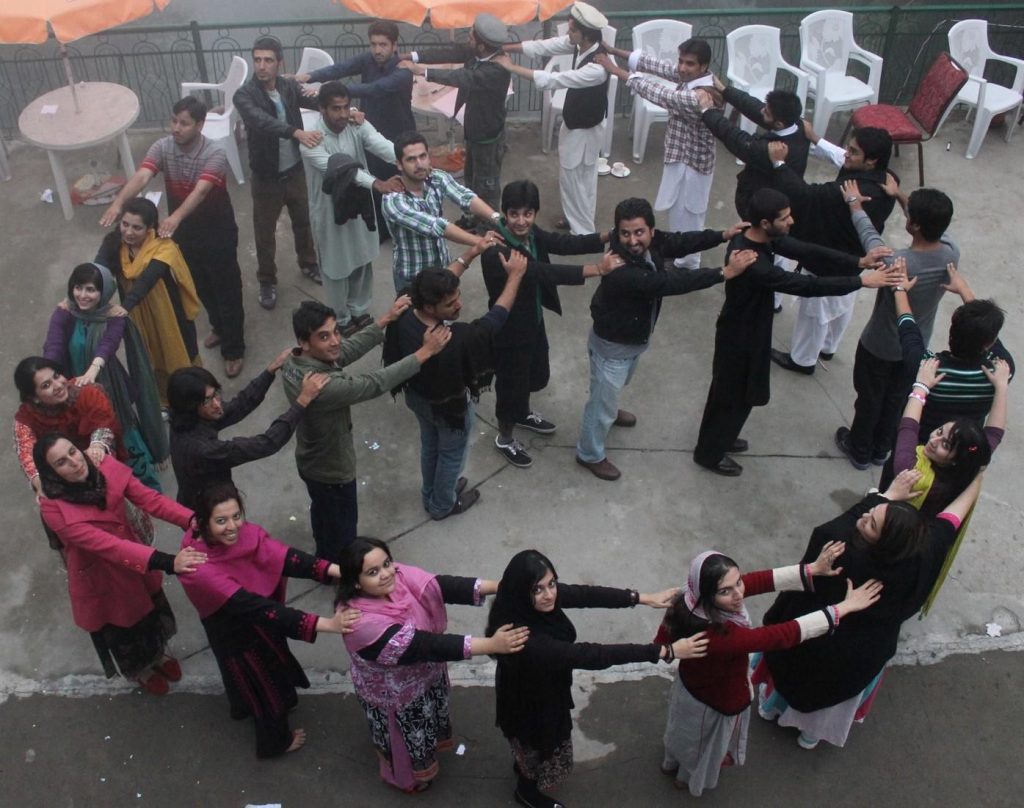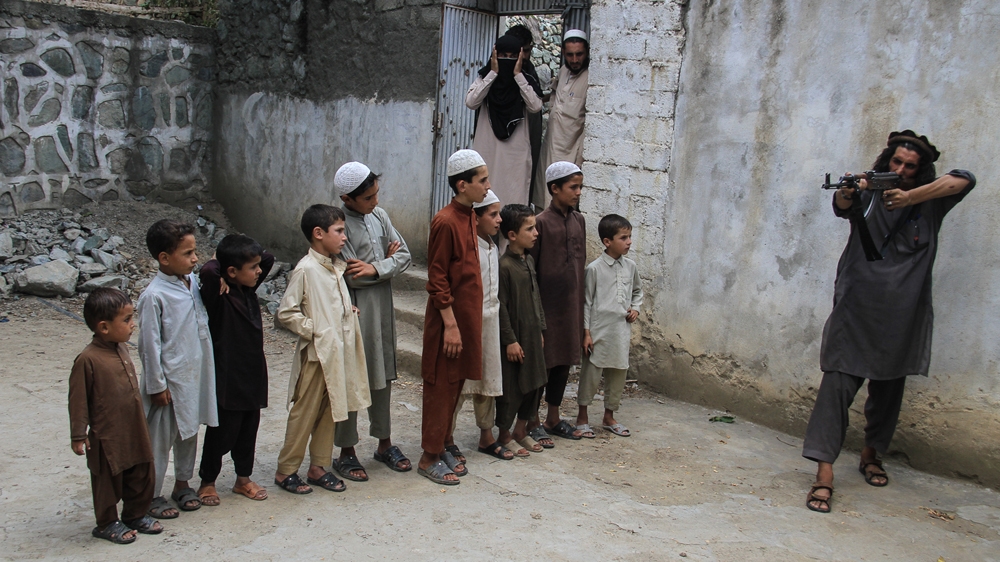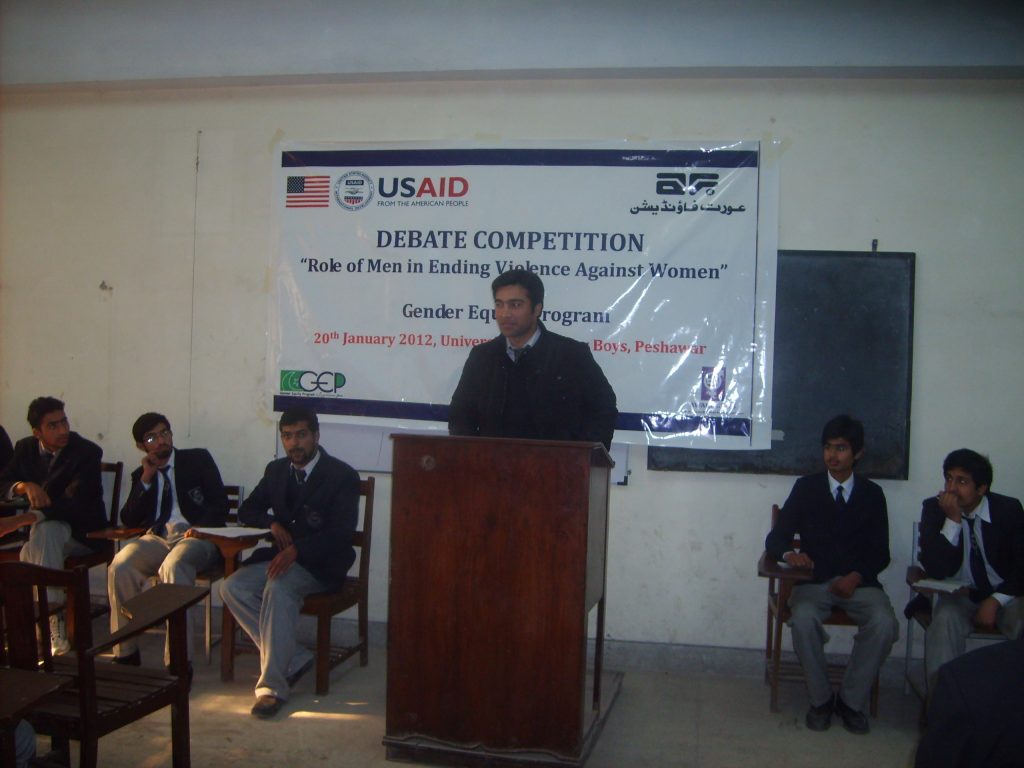By Dawood Shah

Growing up in Pakistan in the 1990s, I witnessed a “systematic radicalization” of society. I observed this phenomenon most acutely in my hometown in the rural Swat district, which was controlled by the Pakistani Taliban between 2007 till 2009. I saw open recruitment by the militant organizations in the name of jihad. What was striking to me was that most of these people who were being recruited by the militant organizations were our local youth. Radicalization continues to be a grave problem in the country. The 2017 Global Terrorism Index (GTI) ranked Pakistan as the fifth-worst country out of 163. Between 2000 and 2018, 63,438 people were killed by terrorism-related violence, according to the South Asia Terrorism Portal, one of the largest online databases on terrorism in South Asia. There is no monolithic trigger. The sociopolitical context, along with personal triggers, pushes young people towards radicalization. However, let me clarify one thing: Poverty, unemployment and lack of education are not the primary triggers. While these things may be a trigger in other countries, they are not drivers of radicalization in Pakistan. One of the primary factors driving extremism here has been the state’s reliance on fundamentalist discourse. The state was instrumental in promoting radicalized ideas, through education, the media, and religious right-wing political parties. This is why society became more extreme, more right-wing and more vulnerable to recruitment. Another factor is that Pakistan, like many other countries, has a strong war economy. War has become a billion-dollar business; extremism has become a billion-dollar business, while peace has not.
I believe that in each context, the triggers for violent extremism are different. It is, therefore, the job of local peacebuilders to develop context-specific solutions, because they are living in their communities and they know what will work best, and what will not work. The strategy I am using in Pakistan might not work in another community. For example, Boko Haram is able to recruit people because they offer money. But in Pakistan, the scenario is different. So different strategies are needed to deal with both Boko Haram and the Taliban in Pakistan. But, either way, the effort has to be local, because local people have the experience. In Pakistan, we have been living under violent extremism and radicalization for the last 30 years. We are the ones who know why we have this issue and how to solve it. Strategies to counter radicalization among vulnerable youth. First, violent extremist groups promote one worldview. They promote unity and, in the name of unity, they promote uniformity. In other words, uniformity is encouraged, diversity is discouraged. To counter this, we celebrate existing diversity and pluralism. We give young people the opportunity to interact with people of different religions, sect, ethnicities – people who have different opinions and different thoughts. In the process, they learn how to humanize the other, how to break the process of othering that is so integral to militant identities.
Second, extremist organizations promote one kind of heroism: violent heroism or martyrdom. Meanwhile, we promote nonviolent heroism. We are teaching the youth that heroism is not in killing yourself for an ideology, but in working on developing your community and building peace and prosperity. We can introduce an award program for young people who engage in long-term and effective community development. We give them awards to recognize them as heroes ( nonviolent heroes).

Third, militant organizations leverage an identity crisis that plagues many of Pakistan’s youth. Pakistani youth have been alienated from their indigenous identities and culture in favor of a transnational Muslim identity. They are not taught their indigenous mother tongues, their indigenous history or their music traditions in schools. What’s more, indigenous movements and indigenous heroes have been portrayed as traitors in our books. In this context, militant organizations can recruit youth by giving them a sense of identity, a sense of meaning and purpose. To counter this, we are connecting the youth with their indigenous culture, through intergenerational dialogue which allows them to engage with the older generation. We teach them about indigenous movements. Some of our volunteers have even started music academies and they’re teaching native musical instruments which are becoming extinct.
Fourth, militant organizations are very good at personal engagement with recruits. This technique is important because the triggers for radicalization are not only socio-political but also deeply personal. This is why it’s also very important for us to reach out to young people on an individual level. We invite them to build relationships with members of our network and engage with them in peer-to-peer education processes.

Finally, we encourage our community to engage in nonviolence to curb the appeal of extremism. We have learned that small-scale local programs are very helpful in preventing and transforming conflict. We provide support to these young people so that they can do small-scale programs in their own communities on peace education and campaigning. For example, they would go to a madrasa (religious school) and they will teach nonviolent conflict resolution skills. They do an interfaith harmony dialogue. We give them support and provide them endorsements so that they can do programs for peacebuilding in their communities.

With the madrasas (religious school), our main takeaway is that we shouldn’t be labeling anyone. The best way to approach young people, even if they’re in madrasas (religious school), is not to see them as victims or as to see them as beneficiaries, but to see them as partners. If I go to a madrasa and I tell students I have come here to de-radicalize you, it would be disrespectful to the people and it would show my own biases. It means I have already established the fact that these people are radicalized when that is not necessarily true. Therefore, it is important to use positive terminologies and positive words when working with young people. We talk to them about issues that our country is facing, issues that our local community is facing, we talk about the drivers of those issues, the history of those issues and how, together, as young people, we can build peace in our communities and the role nonviolence and pluralism can play.


